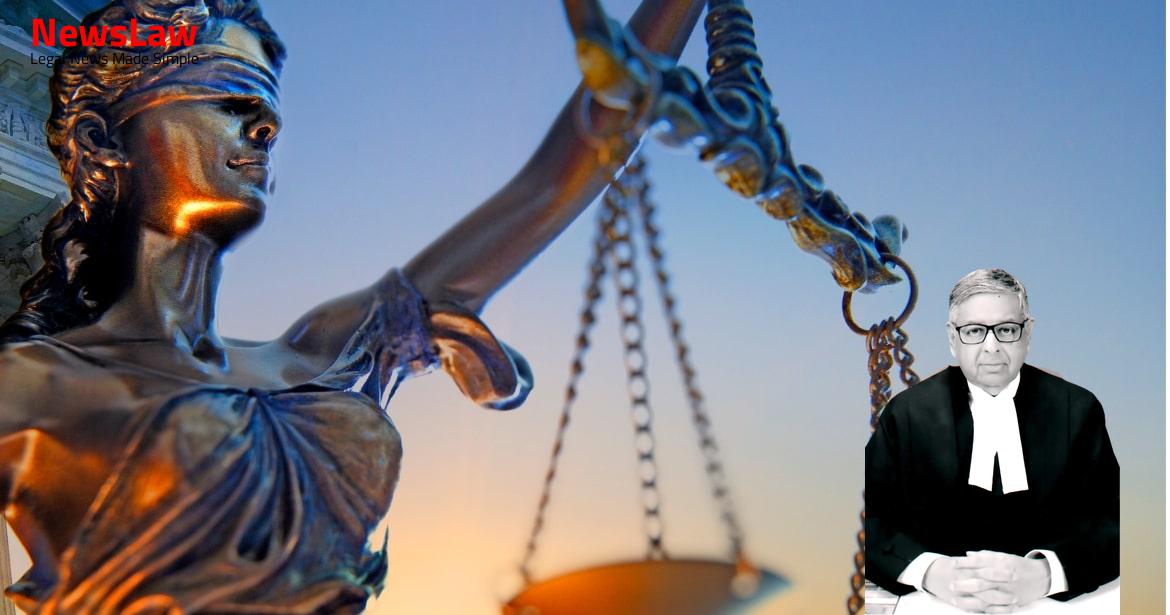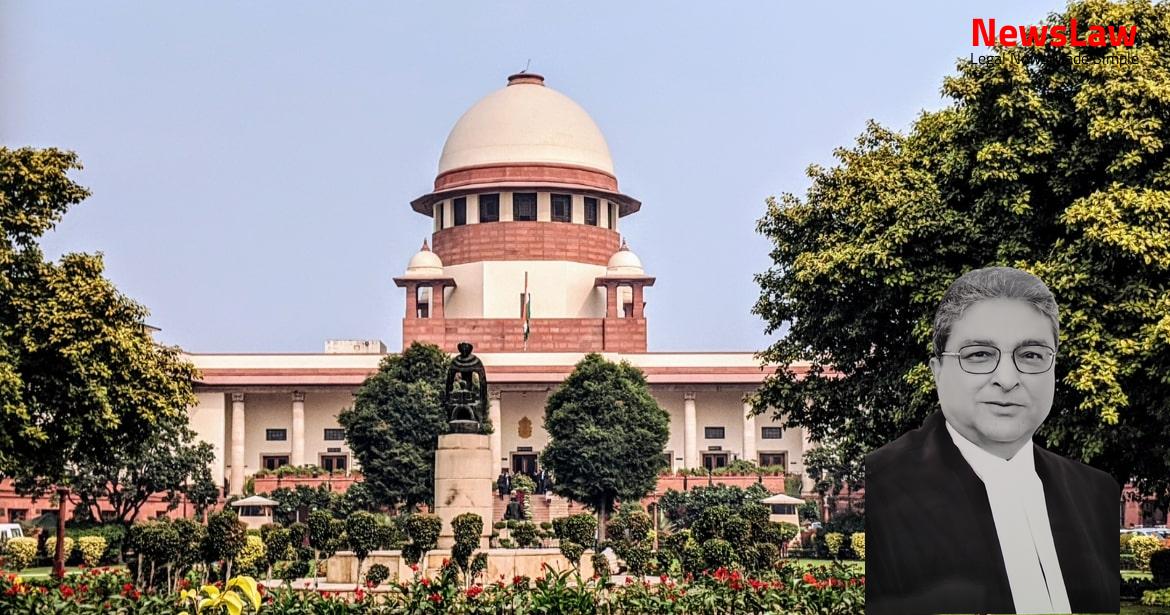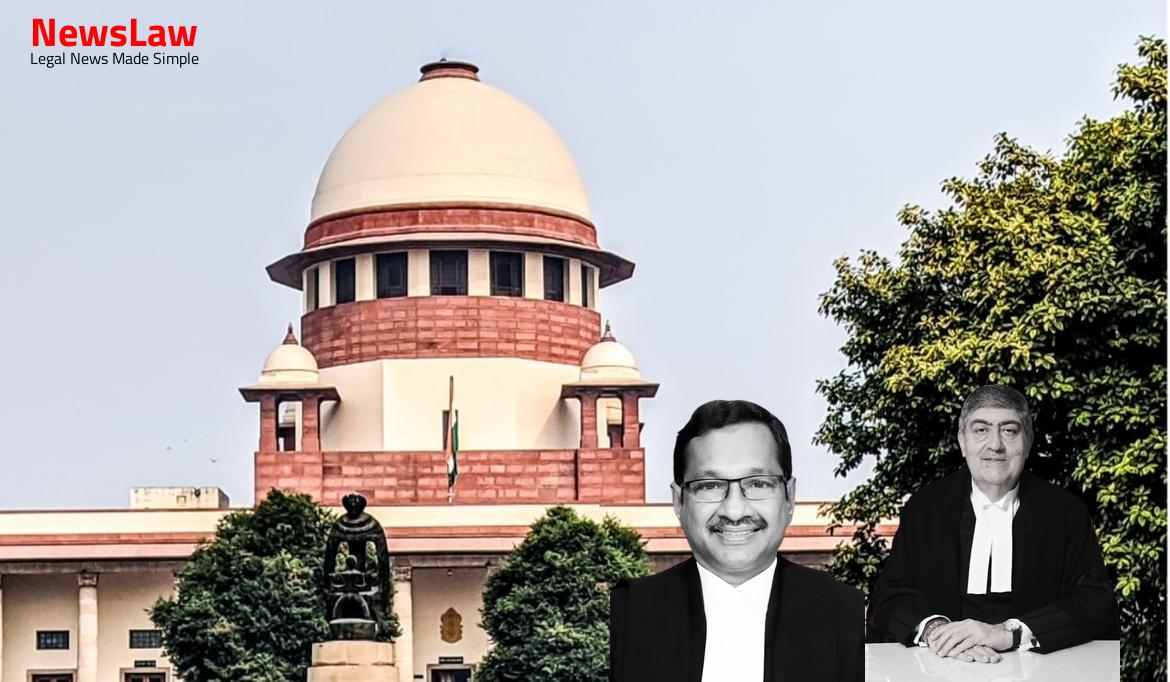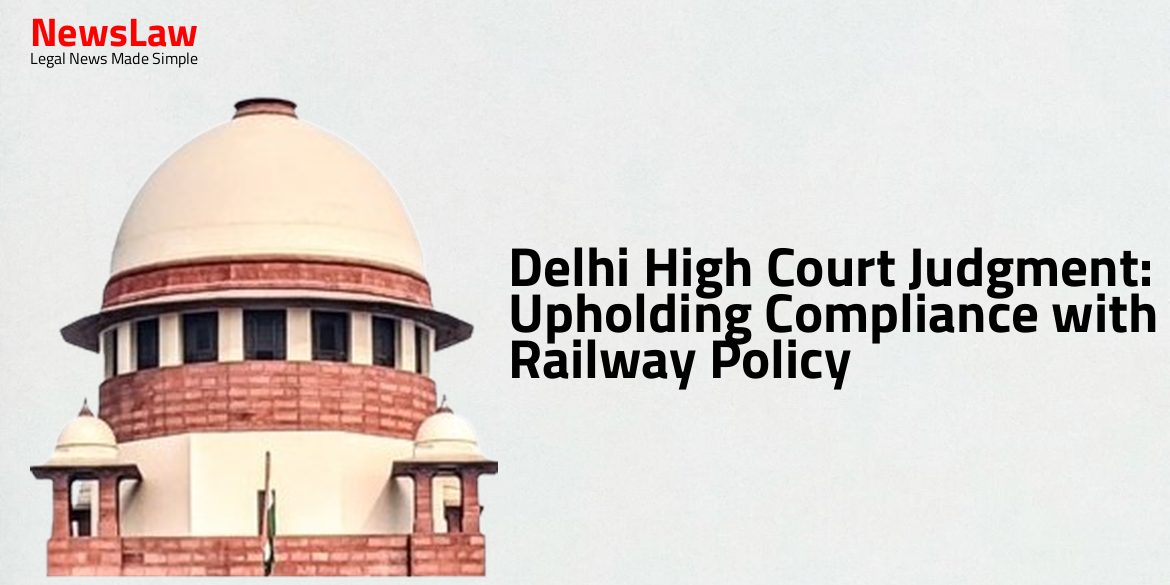The court’s in-depth legal analysis on the transfer of the suit for partition and the testamentary proceeding sheds light on significant jurisdictional matters. Stay tuned for insights into how the court navigates complex legal issues in these proceedings.
Facts
- The petitioners are daughters of Late Pawan Kumar Singha, the deceased
- The suit in question is registered as CS(OS)No.2888 of 2014
- The plaintiff in the suit is Rashmi Ahluwalia, the second wife of the deceased
- Rashmi Ahluwalia, the widow of the deceased and one of the petitioners, seeks transfer of the suit for partition and other ancillary reliefs filed in the Delhi High Court
Also Read: Legal Analysis: Ownership Dispute and Validity of Will Deed
Arguments
- The petitioners in this proceeding, Shamita Singha and Masoom Singha, are daughters of Pawan Kumar Singha from his first marriage.
- Shamita Singha has applied for grant of Letters of Administrations to the estate of Pawan Kumar Singha based on his Will dated 15 January 2014.
- Rashmi Ahluwalia has claimed partition of the estate of the deceased and has sought a declaration of entitlement to 1/4 share.
- The assets claimed by the petitioners through the Will also form the subject matter of the suit for partition.
- The third defendant in the suit for partition is Ms. Sanjana Ahluwalia, the daughter of Rashmi Ahluwalia from her first marriage.
- Ms. Arora, learned counsel, argues that the Probate Court has exclusive jurisdiction over will-related matters and thus the suit in the Delhi High Court should be transferred to the Probate Court.
- Ms. Mishra, learned counsel for the respondents, argued for the continuation of the suit in the Delhi High Court.
- She suggested that both proceedings can run simultaneously in their respective forums.
Also Read: Analysis of Curative Jurisdiction in Legal Dispute
Analysis
- In Chitivalasa Jute Mills vs Jaypee Rewa Cement, the guideline for transfer of suit under Section 25 of the Code was laid down.
- In cases where parties are substantially the same in two suits, the court has directed clubbing together of both proceedings for hearing.
- The Suit for partition was instituted before the Probate Proceeding, and it is argued that the latter should be transferred to the Delhi High Court if clubbing together of the two proceedings is warranted.
- The Probate Court has primacy on the question of validity of a Will as per Chiranjilal Shrilal Goenka vs Jasjit Singh and Others case.
- Praveer Chandra vs. Aprajita & Others case held that a partition suit and Probate Proceeding could proceed simultaneously, but if the Partition suit was decreed, the decree would come into effect after the decision in the Probate proceeding.
- Probate Court is not competent to determine the question of title of the properties forming the subject-matter of a Will.
- The principle of ‘First past the post’ does not apply in Testamentary proceedings.
- A petition for transfer under Section 25 of the Code is decided based on the ends of justice.
- Granting Letters of Administration does not determine the title of the assets in the Testamentary Petition.
- The respondents are contesting the petition for grant of Letters of Administration by claiming the Will to be forged.
- The assets in the Testamentary proceeding may impact the pending suit for partition.
- Common issues would arise for adjudication in both the Testamentary proceeding and the suit for partition.
- The claims made in the partition suit involve the properties of the deceased, including those listed under the Testamentary proceeding.
- The outcome of the Probate proceeding is expected to influence the suit for partition before the Delhi High Court.
- The specific part (PRE_NOT_RELIED) of the judgment in the case of Praveer Chandra was discussed.
- Plaintiffs in the suit for partition are also contesting the Testamentary Petition.
- Plaintiffs would not be greatly inconvenienced in prosecuting the suit before the Bombay High Court.
- The Will has been executed in Mumbai.
- The two attesting witnesses who affirmed affidavits to support the Will are from Mumbai.
Also Read: Contractual Interpretation in Real Estate Dispute
Decision
- The suit filed in the Delhi High Court by Rashmi Ahluwalia registered as C.S.(O.S.) No.2888 of 2014 is to be transferred to the Bombay High Court.
- There shall be no order as to costs.
- If the Hon’ble Judge before whom the Testamentary Petition is listed does not have the determination to hear the suit for partition as per the roster of the Bombay High Court, the file may be placed before the Hon’ble Chief Justice, Bombay High Court for appropriate order of assignment so that both the Suit and the Testamentary petition can be heard together.
- The Transfer Petition is allowed in the above terms.
- On transfer, the suit is to be listed before the Hon’ble Judge who is adjudicating Testamentary Petition No.821 of 2016.
- Any interim order shall stand dissolved.
Case Title: SHAMITA SINGHA Vs. RASHMI AHLUWALIA (2020 INSC 437)
Case Number: T.P.(C) No.-001531 / 2018



